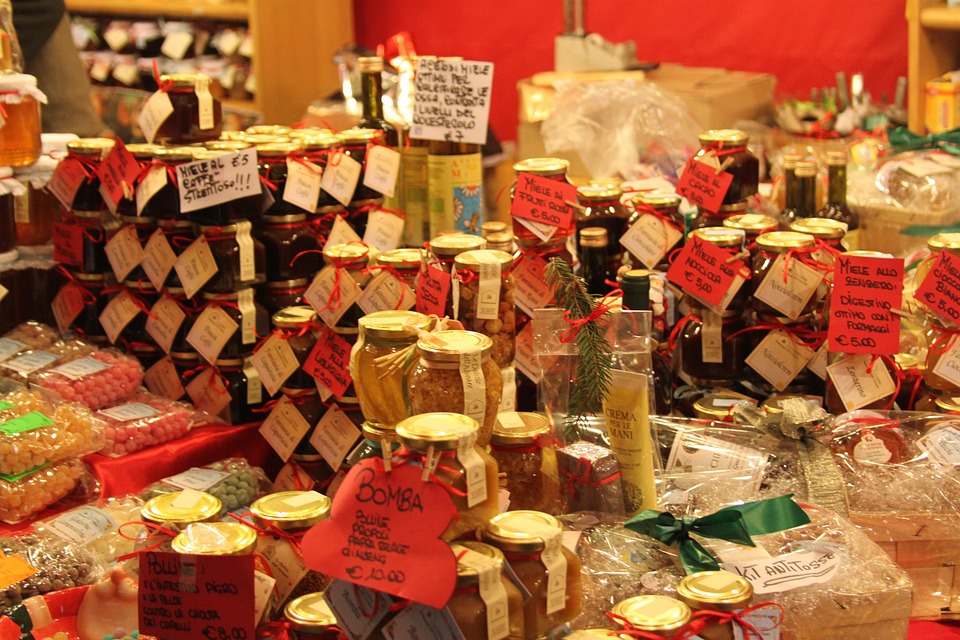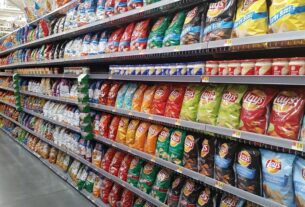The Most Iconic Grocery Store Brands in the World
In today’s fast-paced world, grocery stores play a crucial role in providing essential food and household items to consumers. From small local markets to large supermarket chains, the grocery industry is a competitive and dynamic sector that constantly evolves to meet the changing needs of customers. In this report, we will explore some of the most iconic grocery store brands in the world, examining their market share, financial performance, and future plans.
1. Walmart
Walmart is one of the largest grocery store brands in the world, with a significant presence in the United States and other countries. The retail giant’s grocery division accounts for a substantial portion of its overall revenue, with a wide range of products including fresh produce, meat, dairy, and packaged goods. In recent years, Walmart has invested heavily in expanding its online grocery offerings, allowing customers to order groceries for pickup or delivery.
Financially, Walmart’s grocery business has remained strong, with steady revenue growth and profitability. The company’s scale and purchasing power enable it to offer competitive prices to customers, driving foot traffic to its stores and online platforms. Walmart’s future plans include further expansion of its grocery delivery services and increased focus on sustainability and locally sourced products.
2. Kroger
Kroger is another major player in the grocery industry, operating a network of supermarkets, convenience stores, and online grocery platforms. The company’s grocery brands include Kroger, Ralphs, Fred Meyer, and others, serving millions of customers across the United States. Kroger is known for its focus on fresh and organic products, as well as its private label brands that offer high-quality products at competitive prices.
In terms of financial performance, Kroger has faced challenges in recent years due to increased competition and changing consumer preferences. However, the company has implemented strategic initiatives to improve its operations and drive growth. Kroger’s future plans include expanding its online grocery business, investing in technology and innovation, and enhancing its sustainability efforts.
3. Tesco
Tesco is a leading grocery retailer in the United Kingdom and has a significant presence in other countries, including Ireland, Hungary, and Thailand. The company operates a diverse portfolio of stores, including supermarkets, hypermarkets, and convenience stores, offering a wide range of grocery and non-food products. Tesco’s grocery brands include Tesco Finest, Tesco Organic, and Tesco Value, catering to different customer segments.
Financially, Tesco has faced challenges in recent years, including increased competition from discount retailers and changing consumer shopping habits. However, the company has implemented cost-saving measures and strategic initiatives to improve its performance. Tesco’s future plans include focusing on online grocery growth, expanding its product range, and enhancing its customer experience.
4. Aldi
Aldi is a global discount supermarket chain with a strong presence in Europe, the United States, and Australia. The company’s grocery stores offer a limited selection of products at low prices, attracting price-conscious consumers looking for value. Aldi’s private label brands are a key differentiator, with high-quality products that compete with national brands on price and quality.
Financially, Aldi has experienced rapid growth in recent years, expanding its store network and increasing its market share in key markets. The company’s focus on efficiency and cost control has helped it maintain profitability and competitiveness. Aldi’s future plans include further expansion into new markets, increasing its product range, and enhancing its sustainability efforts.
5. Costco
Costco is a membership-based warehouse club that operates in the United States, Canada, Mexico, and other countries. The company’s grocery division offers a wide range of products, including fresh produce, meat, bakery items, and packaged goods, at wholesale prices to members. Costco’s private label brands, such as Kirkland Signature, are popular among customers for their quality and value.
Financially, Costco has been a strong performer in the grocery industry, with consistent revenue growth and profitability. The company’s membership model and focus on bulk purchasing enable it to offer competitive prices to customers. Costco’s future plans include expanding its e-commerce business, enhancing its product offerings, and investing in sustainability initiatives.
In conclusion, the grocery industry is a dynamic and competitive sector with several iconic brands that have a significant impact on the global market. Companies like Walmart, Kroger, Tesco, Aldi, and Costco are continuously evolving to meet the changing needs of customers, drive growth, and stay ahead of the competition. By understanding the market share, financial performance, and future plans of these iconic grocery store brands, stakeholders can make informed decisions and navigate the evolving landscape of the grocery industry.
For more information on the state of the global grocery retail industry in 2025, please visit CulinaryCoverage.com.
[End of Report]

